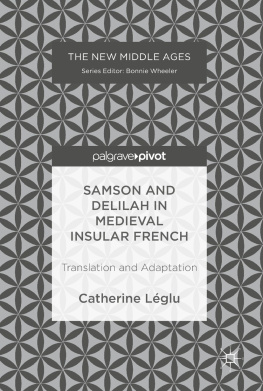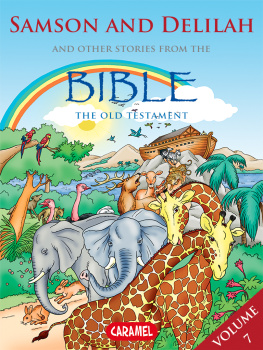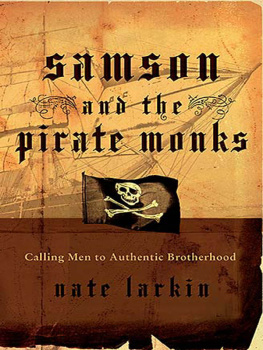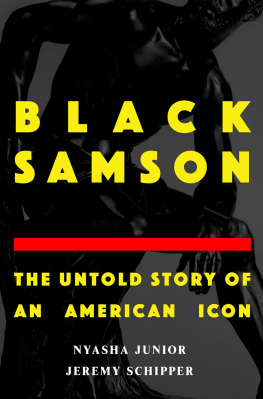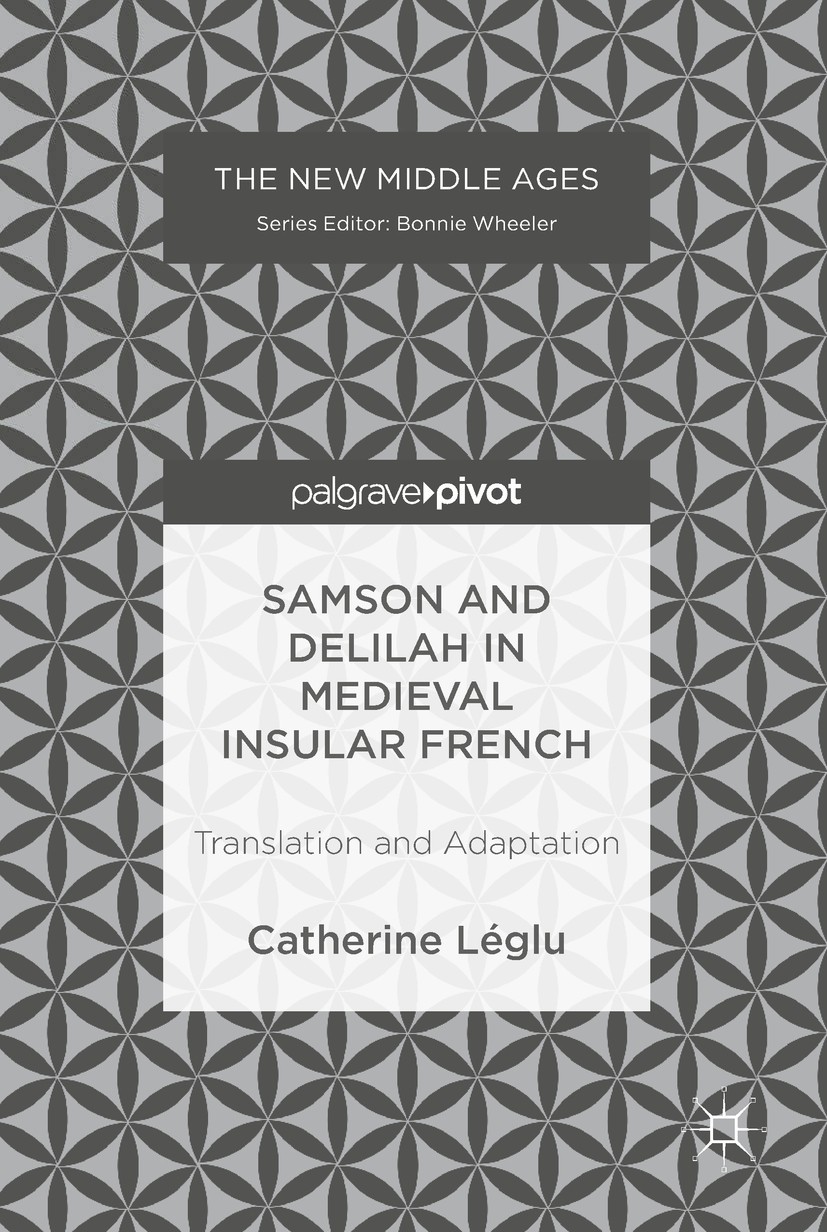The New Middle Ages
Series Editor
Bonnie Wheeler
English and Medieval Studies, Southern Methodist University, Dallas, TX, USA
The New Middle Ages is a series dedicated to pluridisciplinary studies of medieval cultures, with particular emphasis on recuperating womens history and on feminist and gender analyses. This peer-reviewed series includes both scholarly monographs and essay collections.
More information about this series at http://www.palgrave.com/gp/series/14239
Catherine Lglu
Samson and Delilah in Medieval Insular French Translation and Adaptation
Catherine Lglu
Department of Modern Languages and European Studies, University of Reading, Reading, UK
The New Middle Ages
ISBN 978-3-319-90637-9 e-ISBN 978-3-319-90638-6
https://doi.org/10.1007/978-3-319-90638-6
Library of Congress Control Number: 2018949353
The Editor(s) (if applicable) and The Author(s) 2018
This work is subject to copyright. All rights are solely and exclusively licensed by the Publisher, whether the whole or part of the material is concerned, specifically the rights of translation, reprinting, reuse of illustrations, recitation, broadcasting, reproduction on microfilms or in any other physical way, and transmission or information storage and retrieval, electronic adaptation, computer software, or by similar or dissimilar methodology now known or hereafter developed.
The use of general descriptive names, registered names, trademarks, service marks, etc. in this publication does not imply, even in the absence of a specific statement, that such names are exempt from the relevant protective laws and regulations and therefore free for general use.
The publisher, the authors and the editors are safe to assume that the advice and information in this book are believed to be true and accurate at the date of publication. Neither the publisher nor the authors or the editors give a warranty, express or implied, with respect to the material contained herein or for any errors or omissions that may have been made. The publisher remains neutral with regard to jurisdictional claims in published maps and institutional affiliations.
Cover illustration: Melisa Hasan
This Palgrave Pivot imprint is published by the registered company Springer Nature Switzerland AG
The registered company address is: Gewerbestrasse 11, 6330 Cham, Switzerland
Acknowledgements
Many colleagues and friends have contributed directly and indirectly to this book. The idea came out of two invitations. One was a contribution to a conference on the manuscripts of Reading Abbey, co-organised in 2015 by Anne Lawrence and Laura Cleaver for the University of Readings Graduate Centre for Medieval Studies. The other was an introductory chapter to a volume devoted to performance in the Middle Ages, edited by Pauline Souleau and Henry Hope. Both projects led me to conclude that there was more to be said about the translation of this biblical narrative in medieval culture. Papers from various stages of this project were presented at the conference New Perspectives in Occitan Literature at the IMLR, September 2015, the Annual Conference of the Society for French Studies, Glasgow, July 2016, and at the International Medieval Congress, University of Leeds, July 2017. Peter Kruschwitz helped me with the epigraphy in Chapter . Franoise Le Saux, Jim Simpson and Lindy Grant read drafts and made many useful suggestions. I am grateful also for the generous and helpful comments and suggestions of Peter Davies, Marianne Ailes, Linda Paterson, Simon Gaunt, Tom Hinton, Daron Burrows, Rebecca Rist, Irne Fabry-Tehranchi, Paola Nasti, Anne Marigold Norbye, Ardis Butterfield, Jim Simpson, Kathryn Smith, Brent Pitts and Sara James. The University of Readings Department of Modern Languages and European Studies granted me a terms study leave in which to see this project through to its conclusion. Thank you also to my husband and children for their forbearance.
Parts of Chapter are reproduced with permission from my article, Reading Abbeys Anglo-Norman French translation of the Bible: London British Library Royal MS 1 C III. special issue of Reading Medieval Studies , edited by Laura Cleaver, 42 (2016), 131155.
Douay-Rheims Bible, Judges 1316
Each of the many different versions of the Bible reflects historical processes of translation and reception. The fourth-century Latin Vulgate, translated by Jerome from Greek and Hebrew versions, is the common source for the medieval translations and adaptations that are discussed in this book. All quotations from it are taken from Biblia Sacra iuxta vulgatam versionem , ed. by R. Weber and R. Gryson, 4th ed. (Stuttgart: Deutsche Bibelgesellschaft, 1994). Most recent English-language studies of Judges 1316 cite the King James Bible (published in 1611, revised in 1769); however, it is easier to render the idiosyncrasies of the Vulgate text by consulting its closest translation into English, the Douay-Rheims Bible (1582 to 1610, extensively revised in 17491752). Using an early modern text also highlights the linguistic gap between Jeromes fourth-century work and writers of the twelfth to fourteenth centuries. The extract below from the Douay-Rheims Bible and all other citations from this text are taken from The Holy Bible, translated from theLatin Vulgateand diligently compared with other editions in divers languages (Douay, AD 1609; Rheims, AD 1582) , Rev. ed. Richard Challoner (London: Burns, Oates and Washbourne, 1914).
Chapter 13And the children of Israel did evil again in the sight of the Lord: and he delivered them into the hands of the Philistines forty years.
Now there was a certain man of Saraa, and of the race of Dan, whose name was Manue, and his wife was barren.
And an angel of the Lord appeared to her, and said: Thou art barren and without children: but thou shalt conceive and bear a son.
Now therefore beware, and drink no wine nor strong drink, and eat not any unclean thing.
Because thou shalt conceive, and bear a son, and no razor shall touch his head: for he shall be a Nazarite of God, from his infancy, and from his mothers womb, and he shall begin to deliver Israel from the hands of the Philistines .
And when she was come to her husband, she said to him: A man of God came to me, having the countenance of an angel , very awful. And when I asked him whence he came, and by what name he was called, he would not tell me:
But he answered thus: Behold thou shalt conceive and bear a son: beware thou drink no wine, nor strong drink, nor eat any unclean thing: for the child shall be a Nazarite of God from his infancy, from his mothers womb until the day of his death.
Then Manue prayed to the Lord, and said: I beseech thee, O Lord, that the man of God, whom thou didst send, may come again, and teach us what we ought to do concerning the child, that shall be born.
And the Lord heard the prayer of Manue, and the angel of the Lord appeared again to his wife, as she was sitting in the field. But Manue her husband was not with her. And when she saw the angel ,
She made haste, and ran to her husband: and told him, saying: Behold the man hath appeared to me, whom I saw before.

